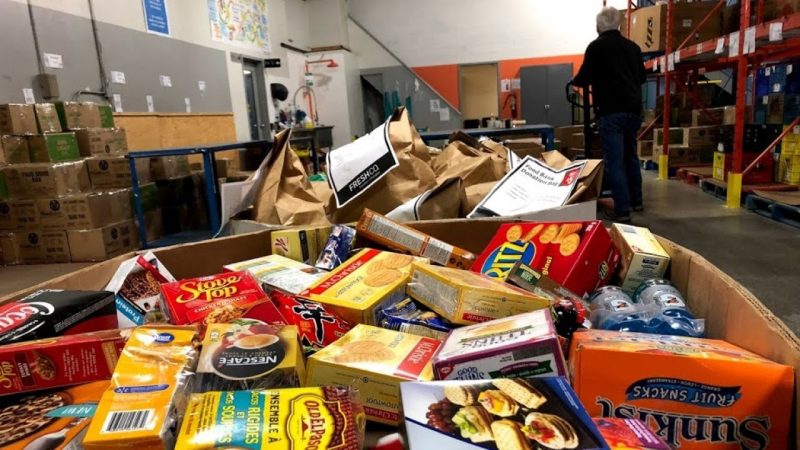As the government launches a fresh attack on Universal Credit claimants and confirms the NI rise will go ahead, food banks warn they will not be able to keep up with demand.

A far cry from Boris Johnson’s vows that “we are all in it together”, the government has introduced what has been described as another way to give benefit claimants ‘a kicking.’
Jobseekers on Universal credit have to look for jobs outside their sectors after just four weeks, rather than three months. Failing to make “reasonable efforts” to find a job, or turning down work, may result in claimants facing a reduction in benefit payment.
The move has been labelled “callous” at a time of rising food and energy costs. Wendy Chamberlain, Lib Dem work and pension spokesperson said: “These harsh sanctions could be applied within weeks of applying for Universal Credit – before people’s first payment even arrives.”
The latest twist of the knife into the plight of the financially struggling, comes as poverty continues to soar in Britain, so much so that food banks face turning away hungry families.
Food banks across the country are reporting higher levels in demand coupled with fewer donations, as people are less able to donate food and essential living items to drop off points. This is accompanied with issues with supply chains, meaning retailers have less excess food.
In the wake of last year’s raid on Universal Credit claimants, which saw recipients abruptly lose the £20-a-week uplift that was introduced as a means of helping struggling households during the pandemic, food banks witnessed a huge rise in demand.
At the time – October 2021 – food banks warned of a “heart-breaking” winter ahead. 45% of these non-profit charitable organisations said they were preparing to cut food parcels or turn people away because of rising demand and supply problems.
‘It’s dire out there’
A survey conducted by the Independent Food Aid Network (Ifan) revealed that, as the £20-a-week cut in UC hit home, 66% of food banks saw an increase in demand. So dire is the situation that around 45% of food bank managers said they would have to either reduce the size of their food parcels or even turn people away.
“It’s dire out there,” William McGranaghan, who manages Dad’s House food bank in London, told the Independent, “The Universal Credit cut is a nightmare.”
Now, in a new crackdown on welfare benefits, coupled with the cost of essential living items rising, as the government confirms planned rises to National Insurance contributions will go ahead in April, food banks are facing even higher levels of demand.
A survey carried out in December by the Independent Food Aid Network (IFAN) found that as UC cuts and inflation dug in its heels, 90% of food banks had witnessed an increase in people asking for help.
In the wake of growing food bank usage, Rachel Revie, chief executive of the Trussell Trust, the UK’s largest network of food banks, urged the government to “look again at our welfare system.”
“If it’s not keeping people out of food banks, then government should be focusing urgent attention on strengthening the social security system,” Revie had said.
Instead of providing people with the state support they desperately need as the cost-of-living soars, the government has made yet another raid on those living on barely survivable incomes.
Gabrielle Pickard-Whitehead is a contributing editor to Left Foot Forward
To reach hundreds of thousands of new readers we need to grow our donor base substantially.
That's why in 2024, we are seeking to generate 150 additional regular donors to support Left Foot Forward's work.
We still need another 117 people to donate to hit the target. You can help. Donate today.



